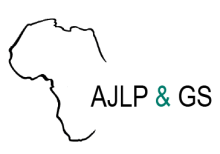/ library resources
Showing items 1 through 9 of 148.The reform of collective land ownership in post-socialist contexts offers a useful window into how changes in property rights shape and structure the dynamics of territorial transformation.
This paper contributes to an emerging literature on free land arrangements in developing countries. We argue that in-depth empirical analysis is crucial to understand the specific terms of land arrangements.
We propose a theory of urban land use with endogenous property rights that applies to cities in developing countries. Households compete for where to live in the city and choose the property rights they purchase from a land administration which collects fees in inequitable ways.
In agrarian societies land serves as the main means not only for generating a livelihood but often also for accumulating wealth and transferring it between generations.
ABSTRACT African culture and tradition on matrilineal land ownership are on the verge of disappearing. Land ownership in rural communities remains an important cultural dimension to secure livelihoods, economic growth, and sustainable development.
Umoja (noun):/ooh-moh-jah/Umoja, is the Swahili philosophy of unity. Its principles underscore the significance of cooperation and communal solidarity.
Context and backgroundAccess to land and productive resources for women is low in many countries especiallyin the developing world where there are less secure property rights in general.
Are “informal real estate markets” really markets? Alternatively, are “informal property rights” tradable? A few years ago, just the mention of these concepts in a title would render it a misnomer.
Urban Management Tested By Information On Land Transactions In The City Of Moyen Mono 1 (Togo)
Paginação
Land Library Search
Through our robust search engine, you can search for any item of the over 73,000 highly curated resources in the Land Library.
If you would like to find an overview of what is possible, feel free to peruse the Search Guide.



